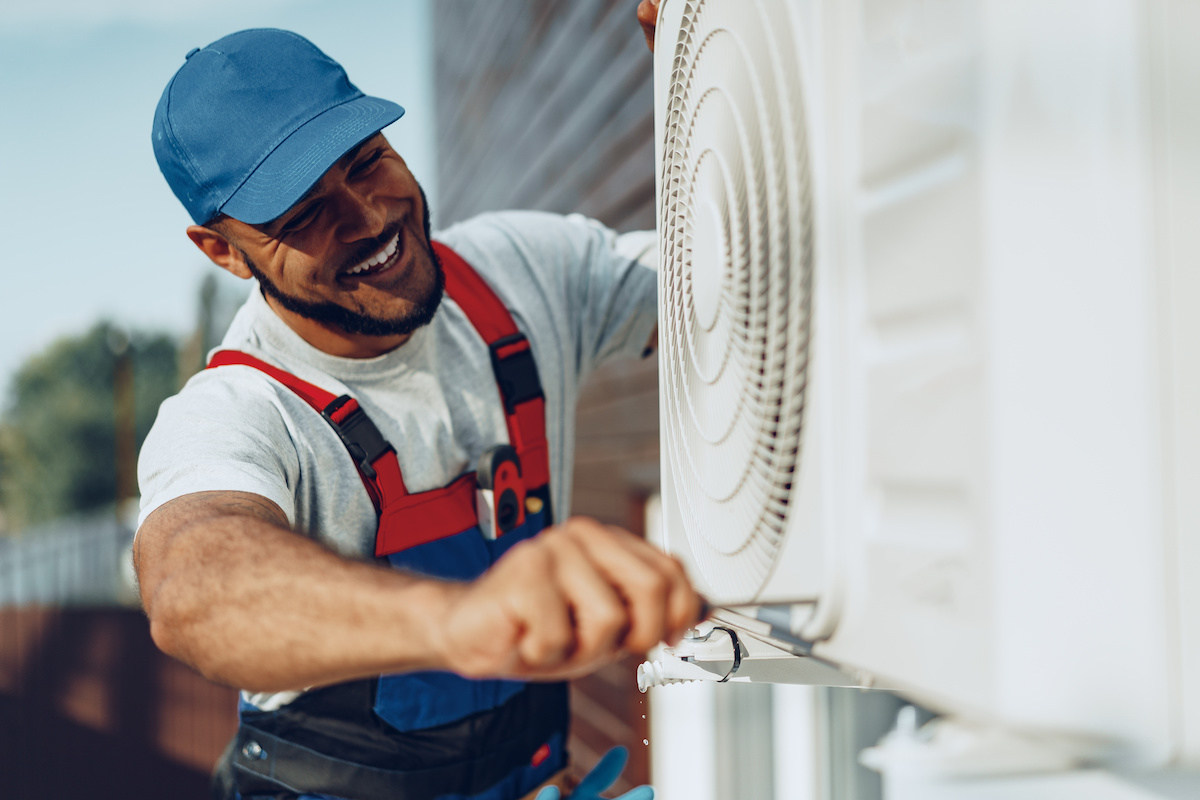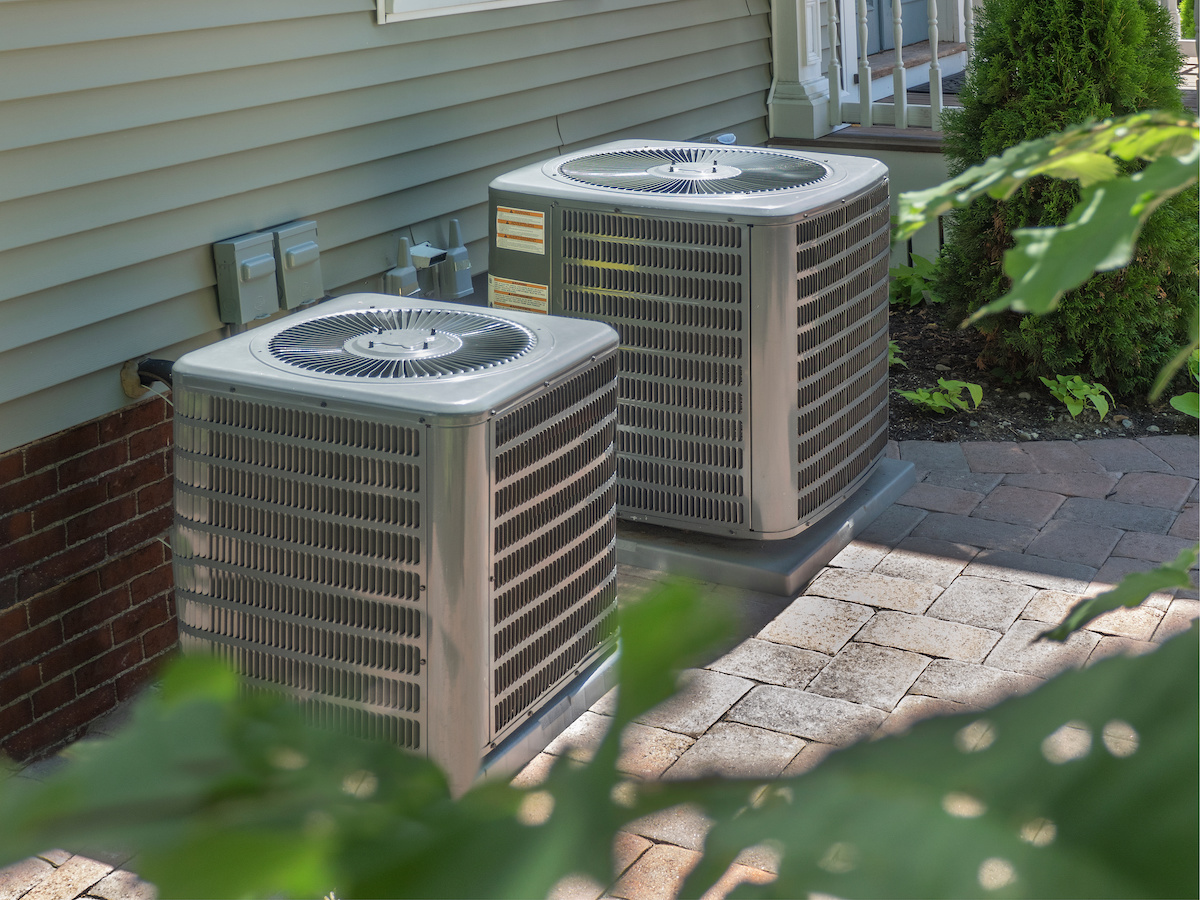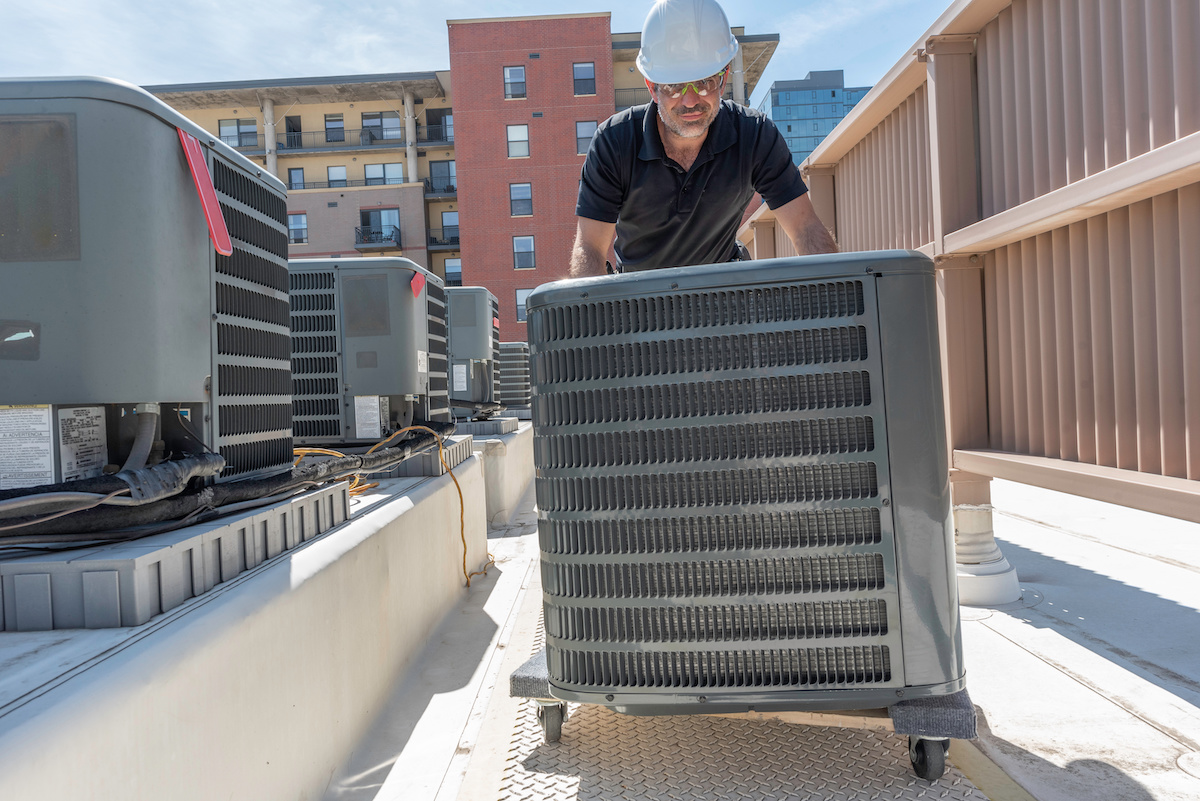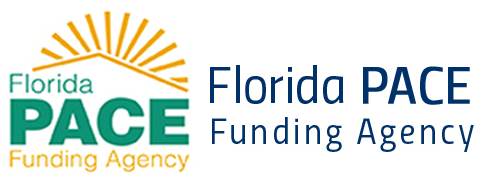
What’s the Average Cost to Replace Your AC Unit in Florida?
Living in Florida means having a reliable air conditioning system is vital for your year-round comfort, especially during the hot and humid summer months. However, as with all appliances, your AC unit will eventually wear out after around 10 – 15 years and require a replacement. If you’re a homeowner whose AC unit has just stopped blowing cold air, you’re likely researching the average cost of installing a new unit in Florida.
To help you make a confident, well-informed decision, we’ve broken down what affects the cost of a new AC unit — from system types to installation complexity — and how Florida PACE can help you fund your upgrade without added stress.
What’s the Cost of a New AC Unit in Florida?
Replacing your air conditioning system is a big investment, but one that pays off in comfort, efficiency and peace of mind. In Florida, the cost of a new AC unit typically ranges from $3,906 to $8,018, depending on several key factors. These include your home’s size, the brand you choose, the unit’s energy efficiency rating and the complexity of the installation.
Higher-efficiency units often come with a larger upfront price tag, but they can lower your energy bills significantly over time. Brands with longer warranties and strong reputations may also cost more initially but offer better long-term value.
Factors That Affect the Cost of a New AC Unit
- Home Size & Unit Capacity: Larger homes need more powerful systems. Most Florida homes require 2- to 5-ton units. Oversizing or undersizing your unit can increase your long-term costs.
- Energy Efficiency (SEER Rating): A SEER rating of 14 is the state minimum, but units with 16 SEER or higher offer better energy savings over time.
- Existing Ductwork: If your current ducts are in good shape, you may save on installation. If not, duct upgrades or a ductless system may be necessary.
- Home Layout: Complex or multi-story layouts may require additional indoor units or unique airflow designs.
Average Prices by AC Type
- Central Air Conditioning: $4,000 – $8,000
- Ductless Mini-Splits: $3,000 – $7,000 per zone
- Heat Pumps: $4,500 – $8,500
- Window or Portable Units: $150 – $800
Tip 1: Consider the Size and Type of AC Unit You’ll Need

It’s essential to consider the size and type of AC unit you’ll need before replacing your current one. The size of your new AC unit will depend on the size of your home and how much cooling is necessary to maintain a comfortable indoor temperature. To identify the right size unit, you can use a BTU calculator, which considers factors like the size of your rooms, the number of occupants and the level of insulation you have. With your BTU calculated, you can correctly identify the best size unit to suit your home.
This may end up being the same size unit as your current one, but it’s important to calculate this number to help you avoid overspending on one a unit that’s too large (and overspending on your monthly energy bills) or underspending on one that’s too small (and overworking your unit, potentially shortening its lifespan).
In addition to size, the type of AC system you choose will also impact the overall cost. Here are three options to consider when replacing your air conditioner:
Central Air Conditioning: This is the most common type of air conditioning system in Florida. It distributes cool air through ducts and vents, making it an ideal choice for large homes or commercial spaces. Central air conditioning is typically the most expensive upfront but provides consistent cooling throughout a house or building. It’s also one of the most energy-efficient systems, as long as the ductwork is installed correctly and is continually well-maintained.
Ductless Mini-Split Systems: These systems are becoming increasingly popular in Florida as an alternative to central air conditioning. Ductless mini-split systems consist of a small outdoor unit and one or more indoor units mounted on walls or ceilings. They are ideal for cooling specific rooms/areas and can be more energy-efficient than central air conditioning since they don’t require ductwork. Additionally, because this AC system is installed without ductwork, it can be an ideal option for homes where installing ductwork is more challenging than usual or not at all feasible,
Window Units: This type of AC system is the most affordable and portable option for cooling a space. These units are easy to install and can be a good option for smaller rooms or apartments. They typically don’t require professional installation and are easy to maintain. However, window units are much less energy-efficient than central air conditioning and ductless mini-split systems, and can be very noisy and take up valuable window space.
When deciding on the best type of AC system for your home, consider factors such as energy efficiency, upfront cost and long-term maintenance. The more energy-efficient the system, the lower your energy bills will be. Additionally, the upfront installation cost may be higher for some systems, with the benefit of long-term maintenance costs being lower.
By understanding the size and type of AC unit you need, you can make an informed decision about the cost of replacing your current unit. This will help you save money in the long run while ensuring your space remains comfortable year-round.
Tip 2: Evaluate the Complexity of Your AC Installation
The complexity of your installation is another factor that will impact the cost of replacing your AC unit as a homeowner in Florida. The installation process will vary depending on the type of air conditioning system you choose and the characteristics of your home.
If your home has existing ductwork, installing a central air conditioning system may be more cost-effective since it can utilize the existing ducts. However, suppose you have an older home without ductwork. Installing a central air conditioning system can be more complicated and expensive, as it may require extensive renovations to install the necessary ducts. In this case, a ductless mini-split system may be a better option since it doesn’t require ductwork.
Additionally, installing a new air conditioning system may require upgrades to your electrical or plumbing systems, which can add to your overall costs. For example, a central air conditioning system requires an electrical connection to operate, and it may need to be connected to your home’s existing plumbing system to remove excess moisture.
If, instead, you are replacing an existing AC unit, the complexity of the installation could also depend on whether your new system requires the same type of refrigerant as your old unit. If your new system requires a different refrigerant type, you may need to replace or modify the existing refrigerant lines, which can also increase your air conditioning costs.
Remember, you should always consult a professional HVAC contractor so you can ensure you’re taking the best course of action and getting the most accurate estimate for all necessary installation costs your AC project may require.
Tip 3: Understand Replacement Costs
Beyond the sticker price of your new unit, several additional costs can affect your total AC replacement cost in Florida. Here’s what you should consider before replacing your AC unit:
Labor and Installation Fees
Labor typically makes up 30% to 50% of your total AC replacement cost, which can translate to $1,200 to $4,000 or more, depending on your system type and installation complexity. This includes removing the old system, installing the new unit, connecting electrical and refrigerant lines, testing system performance and cleaning up the site.
If your AC installation involves adding or repairing ductwork, working in tight attic spaces or upgrading electrical components, you can expect labor costs to rise accordingly. Every home is different, so it’s worth getting multiple quotes to ensure you’re paying a fair rate for skilled, licensed work.
PACE Tip: Florida PACE funding can cover both equipment and labor costs, helping homeowners like you fund the entire scope of the project without upfront payment.
Permit and Inspection Costs
In Florida, a permit is typically required to replace or install an HVAC system, even if you’re just swapping out an old unit for a new one. Permit fees generally range from $100 to $500, depending on your city or county. Some municipalities also require a post-installation inspection to confirm the work meets code and safety standards.
These fees are often included in your contractor’s quote, but it’s a good idea to ask for an itemized estimate so you know exactly what you’re paying for.
Why it matters: Skipping permits can lead to fines or insurance issues down the road. Plus, some utilities will require proof of permitting for rebate eligibility.
Unexpected Expenses to Watch For
- Electrical Upgrades: Newer AC units often require more power or updated breaker panels to run efficiently and safely.
- New Thermostats: Some modern systems are only compatible with smart or programmable thermostats, which may require a separate purchase and installation.
- Refrigerant Line Replacement: Older AC units use refrigerants (like R-22) that are no longer standard. If your new unit uses a different refrigerant, your lines may need to be replaced or flushed.
- Moisture Drainage Improvements: A clogged or poorly routed condensate drain line can cause water damage. In some cases, installers may need to add or upgrade a drainage system to meet code.
Getting a clear estimate from your contractor can help prevent surprise costs during installation.
Tip 4: Do Your Research Before Choosing a Contractor

When it comes to replacing your AC unit, choosing the right contractor can make a big difference in the cost and quality of your installation. It’s essential that you do your research and choose a reputable contractor with experience installing the type of system you need.
To start, consider asking for recommendations from friends, family or neighbors who have had their AC units replaced. You can also search for local HVAC contractors online and check their reviews and ratings on sites like Yelp, Google or the Better Business Bureau.
Once you have a list of potential contractors, consider asking for quotes from multiple companies. This way, you can compare prices and ensure you pay a fair price for your AC installation.
That being said, remember not to choose a contractor based solely on price. Ensure the contractor is licensed and insured, ask for references from previous customers and do your online investigating. You might also want to ask the contractor questions like how many years they’ve been in business, if they’ve installed similar AC systems before and what their warranty policies are.
By spending a little extra time researching and choosing a reputable contractor, you’ll help ensure your new AC unit is installed correctly and that you’re getting value for your investment.
Ready to Replace Your AC Without the Financial Stress?
If you’re facing the high cost of an AC replacement, Florida PACE can help you move forward without the upfront burden. With no credit score required, no down payment and fixed terms added to your property taxes, Florida PACE gives you a reliable way to fund both the equipment and installation — all while keeping your financial peace of mind.
You deserve comfort and confidence in your decision. Apply today to see if your AC project qualifies.



